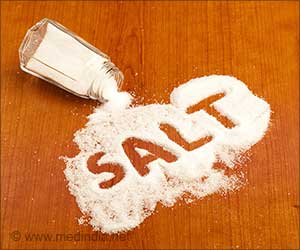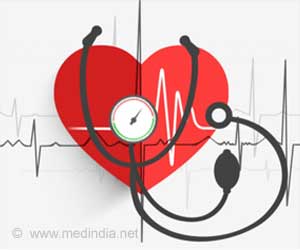
‘Do you often shop in 'unhealthy' areas? A new study warns that shopping in unhealthy locales may put you at high risk of developing high blood pressure. These findings could be the subject of further research, potentially in the context of decreasing health inequalities.’
Read More..Tweet it Now
Blood pressure readings were also offered 50 percent of the time to attract potential volunteers with a more comprehensive and familiar health screening.Read More..
It is well known that persistent high blood pressure (hypertension) can increase your risk of many serious and potentially life-threatening conditions including heart attack, and stroke.
The research team classed retail outlets in shopping centres as 'unhealthy' if they were either a fast-food takeaway, a bookmaker, a tanning salon or a payday loan business, in line with a Royal Society of Public Health (RSPH) report ranking UK town and city shopping centers based on their 'unhealthy' and 'healthy' retail outlets.
The researchers also produced a basic score of each shopping center's 'unhealthiness,' which was the proportion of 'unhealthy' retail outlets open on the day of testing relative to the total number of retail outlets open in the shopping center.
The Pop-Up health check stations were set up in four shopping centers from the top 10 'unhealthiest' shopping centers from the RSPH ranking, and three from the top 15 'healthiest' shopping centers in the ranking.
Advertisement
They also found that in the three 'healthy' shopping centers sampled from the RSPH report ranking (Bristol, Cambridge, and Nottingham), 20 out of 152 adults (13.1%) were flagged as having readings of high blood pressure on repeat testing.
Advertisement
The difference in the proportion of readings of high blood pressure in 'healthy' versus 'unhealthy' shopping centres was also a statistically significant result, translating into a 72 per cent increased likelihood of suspected or diagnosed high blood pressure being reported in an 'unhealthy' shopping center relative to a 'healthy' shopping center.
The study has its limitations, including Pop-Up health check station assessments not being able to offer a definitive diagnosis of high blood pressure. Based on an RSPH report, the 'unhealthiness' score of retail outlets in shopping centers used is a surrogate marker of the 'healthiness' of the shopping area and has not been validated in other studies.
The findings may point to strategies for targeted outreach testing and screening of blood pressure in shopping centers that could be the subject of further investigation, potentially in the context of reducing health inequalities.
David Crabb, Professor of Statistics and Vision Research at City, University of London and who led the research team, said:
"Less than half of those adults aged 40-74 offered the free NHS health check take it. The British Heart Foundation also recently called for NHS health staff to take blood pressure checks at gyms, barbershops and football stadiums and offer blood pressure checks in the workplace. We know that more, effective ways of screening people for high blood pressure are needed, and this study offers an insight into some ways that may be done.
"In our study, over half those recorded as having high blood pressure were aware of having the condition or reported a history of high blood pressure. It may be that differences between 'unhealthy,' and 'healthy' shopping centers could be attributed to differences in detection of high blood pressure, management of high blood pressure or a combination of the two. Both have substantial public health importance, and their relationship to socioeconomic status should be studied further."
Shirley Cramer CBE, Chief Executive of the Royal Society for Public Health, said:
"Our research into UK high streets illustrated how unhealthy businesses concentrate in areas already experiencing lower life expectancy, and this valuable new research explores in detail one of the many factors at play within this alarming trend. The least healthy shopping centers visited by the Pop-Up health check stations are all within some of the most socially deprived areas of the country, so the results of this study exemplify the stark health inequalities that are entrenched across the UK. Exposing and dismantling those health inequalities is a public health priority, and we welcome all promising opportunities for doing so."
Source-Eurekalert















